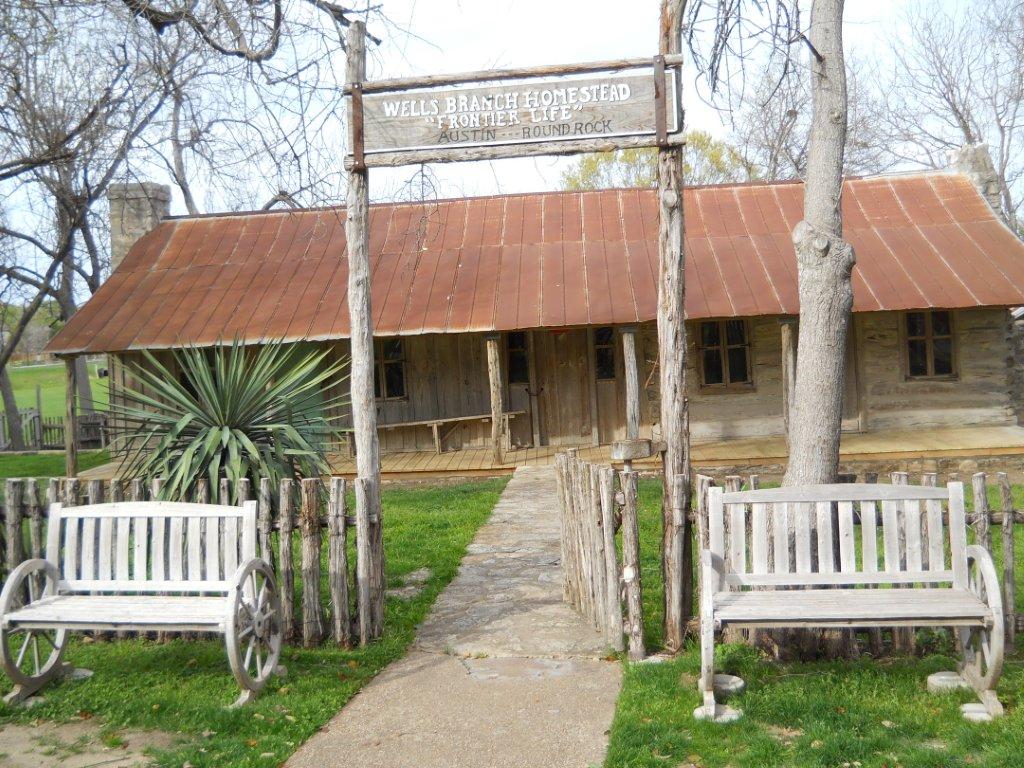Are you ready for September? Are you ready for family tours at the Homestead? That's right! On the third weekend of the cooler months starting this month, Saturday, September 15th, my husband Brian and I invite you to come to the Homestead from 2-4 p.m to explore what life was like in the 19th century in central Texas. Registration is required.
Contact: Matt Fuller, Recreation Manager
Wells Branch Municipal Utility District
3000 Shoreline Drive, Austin Texas, 78728
At this time of the year in the 1850's, pioneer Texans might be asking:
What's the Fun of September
"What's the fun September bringeth? Granaries almost filled to bursting;
Nature's treasures wide she flingeth! By the hill the cider-mill
Pumpkins round and ripe and yellow, Turns its wheels and sets us thirsting;
Appples sound and sweet and mellow; Corn and beans from far afield;
Stacks of grain, safe from rain, Lavish hoards abroad she flingeth---
That's the fun September bringeth!
Did you notice the exclamation points in the poem? SIDE NOTE: On tour in the Holy Land in June, like pioneers we would sit on the terrace of the Mount of Beatitudes Hotel next to the Sea of Galilee each night and enjoy the evening sky . On June 7th, we saw a small light from a meteor expand and create a giant exclamation point in the sky. The moving light first made a horizontal golden straight line then drop from both ends to make a huge bright, gold triangle. The movement slowed, then spiraled into a celestial white circle below the triangle completing the Latin word
io - which means fullness of joy. We learned the monks of old who transcribed the Bible saved manuscript space by placing letters on top of each other; the "i" and "o" went vertical to create the exclamation point.
But, what do you think life was like in 1850? What do you know? We know that Merrelltown, Duval, McNeil and Waters Park, the small communities in the area, did not have electricity at this time. So the pioneers and the Indians would often come out of their hot homes or tepees at night to enjoy the cool evening air under the stars.
Captain Nelson Merrell founded Merrelltown in 1837 and erected a log cabin at the headspring of a creek branch that flows into Walnut Creek near Waters Park . By 1851, a post office had been established to serve the town. Merrilltown was the center of a small farming community that offered residents a steam gristmill, a cotton gin, a general store, and a church (which doubled as a schoolhouse) to serve a population of 35 residents in the 1880s. Merrelltown and Waters Park were the Anglo-American communities in the immediate area. Merrelltown Cemetery is located along FM1325, adjacent to the Loop 1 extension route. Graves are dated from 1845.Waters Park, located at the junction of Loop 1, FM 1325 and the Union Pacific Railroad, began selling its lots in June, 1882, and had a population of around 30. The small town supported a church, schoolhouse, saloon, store and cotton gin. Waters Park was viewed as a popular vacation spot.
The predominately African-American community of Duval, settled in 1875, had about 75 residents and supported a district school, three churches and three stores. After 1890, the population dropped to around 35.
McNeil, the predominately Hispanic community was named in honor of George McNeil, the section foreman for the Austin and Northwestern Railroad companies; it opened a post office in 1888. The town became the base of operations for the Austin White Lime Company which was still in business in 1990. By 1890, the community had a a hotel, a general store and a population of 200. McNeil High School was built for the Round Rock district in 1991.
How would you get to these communities in 1850's? You might ride in a Studebaker. Do you know what a Studebaker is? What would you eat, where would you sleep, what would you wear, what chores would you do, what games would you play? Remember, there was no electricity; no television, no radio, no game boys, no vacuum cleaner, no refrigerator, no air conditioning. Do you have stories from distant relatives to share about life before electricity? We would love to learn your story.

